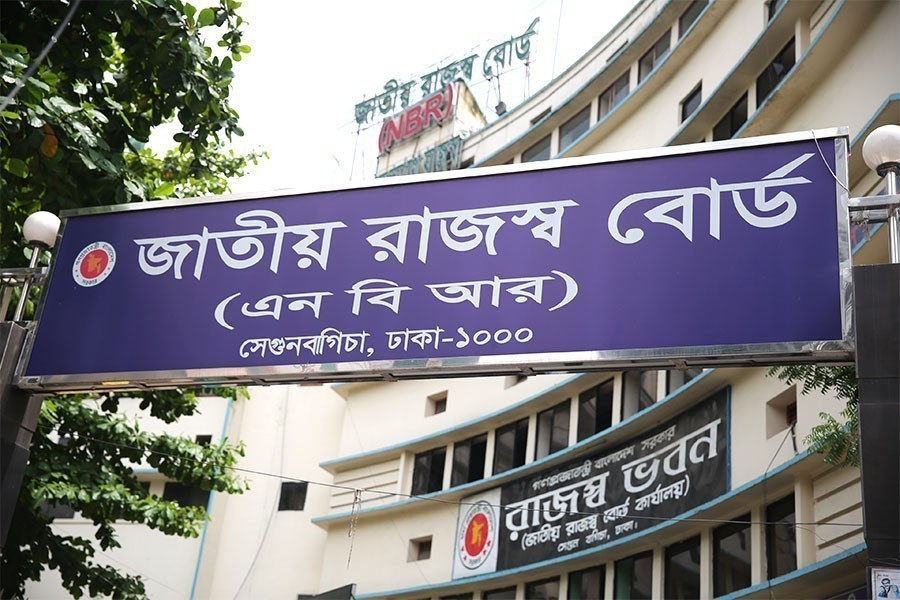Bangladesh economy demonstrated its robustness in terms of GDP growth at 5.2 per cent even at a time (FY19) when the trend was negative globally. In nominal terms, it ranks 35th among the world economies. But considering its tax to GDP ratio currently estimated at 11.9 per cent, it cannot be said that the economy is generating enough revenue to match its size and rate of growth. According to the World Economic Outlook's 2019 report, the average tax-GDP ratio for the developing countries in that year was 25.6. Evidently, Bangladesh is far behind this global average. It is even behind all its South Asia neighbours in this respect. A higher tax-GDP ratio is indicative of a less skewed income distribution pattern in a society. So, a lower tax-GDP ratio despite high growth rate means that a large chunk of the national income is remaining unaccounted for. The end result is that the economy is being deprived of a large amount of its income that could be invested in the country's health, education and infrastructure sectors. Since that is not happening, the question that naturally arises is -- where is such a large amount of money going? This is a nagging issue and has often been raised in different forums. It did again come up at a recent discussion event in the city where economists expressed serious concern about the money that the nation does not get any benefit from. They were of the view that the money is being laundered outside the country. It goes without saying that before the flight of the fund finally takes place, it circulates for some time within the economy in some unknown ways.
It is also generally believed that there is an extensive underworld of black economy fed by such unaccounted-for, ill-gotten money originating from graft, defaulted bank loan and the untaxed money. But the government efforts made so far to check this growing menace of ill-gotten money could not bring the desired result. For instance, the government's provision that undisclosed illegal money can be whitened by paying a penalty tax of 10 per cent did not help matters. The revenue situation did not improve. Worse, it worked as a disincentive for the honest taxpayers on whose income is levied a 33 per cent tax. As a result, a disparity has been created in the taxation regime. It has been further observed by the economists concerned that 80 per cent of the laundered money is trade-based and can be traced back to mis-invoicing during export and import. Clearly, it is a big hole in the economy and must, by all means, be plugged. Obviously, one way of checking such flight of our national wealth is to further strengthen the National Board of Revenue (NBR)'s capacity to monitor and take prompt action against the sources of this financial crime. The Transfer Pricing Cell established under the NBR should be enabled to do its job properly. It should more actively monitor and regulate the under-invoicing and/or over-invoicing of goods and services transacted by the subsidiaries of Multinational Corporations (MNCs) between themselves and their parent companies. If the government means business, it would be required to first give up its current stance of managing the problem. The truth is, there is no room for leniency when it comes to the subject of undisclosed money. The simple answer is to come down hard on it.


